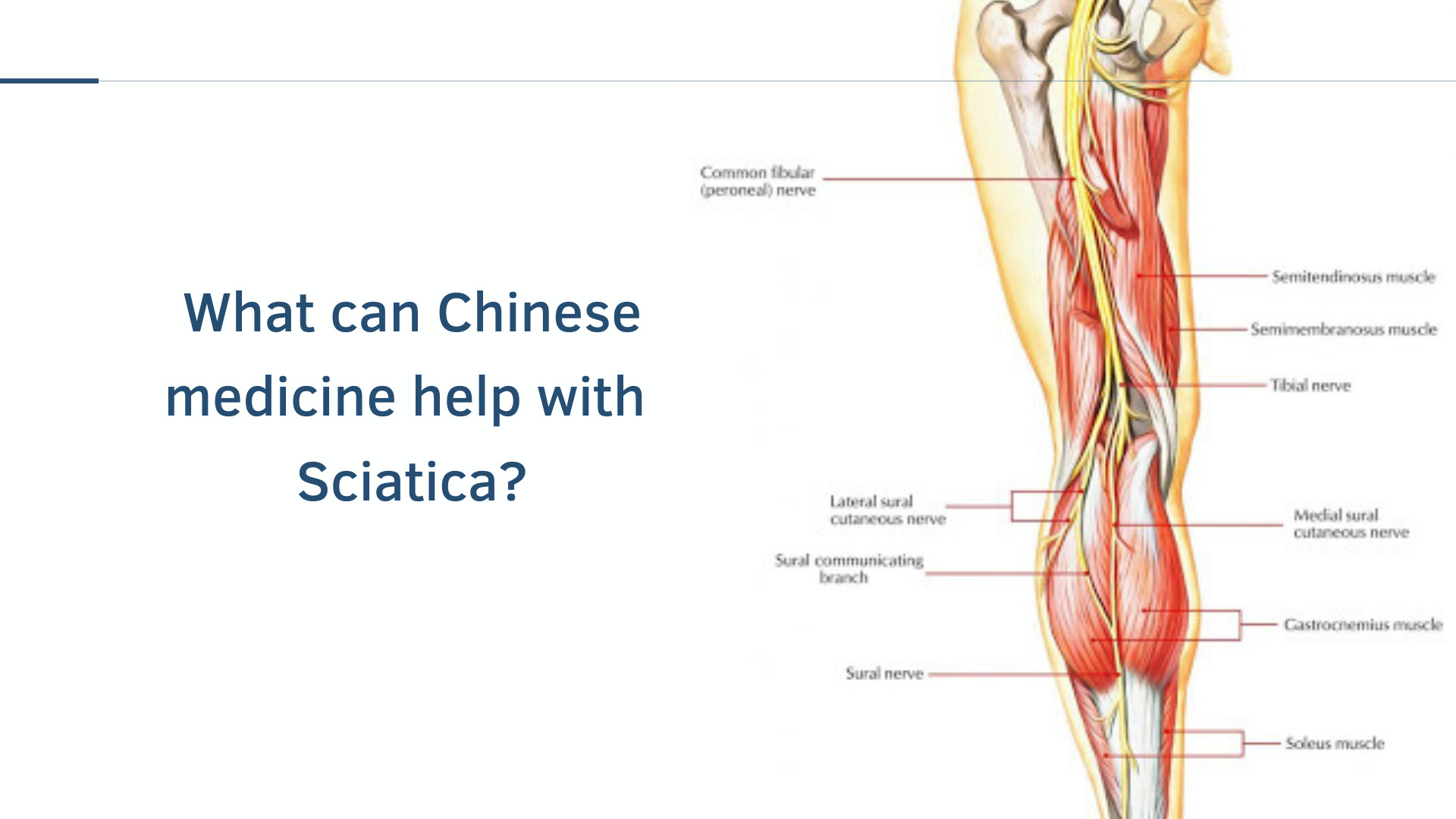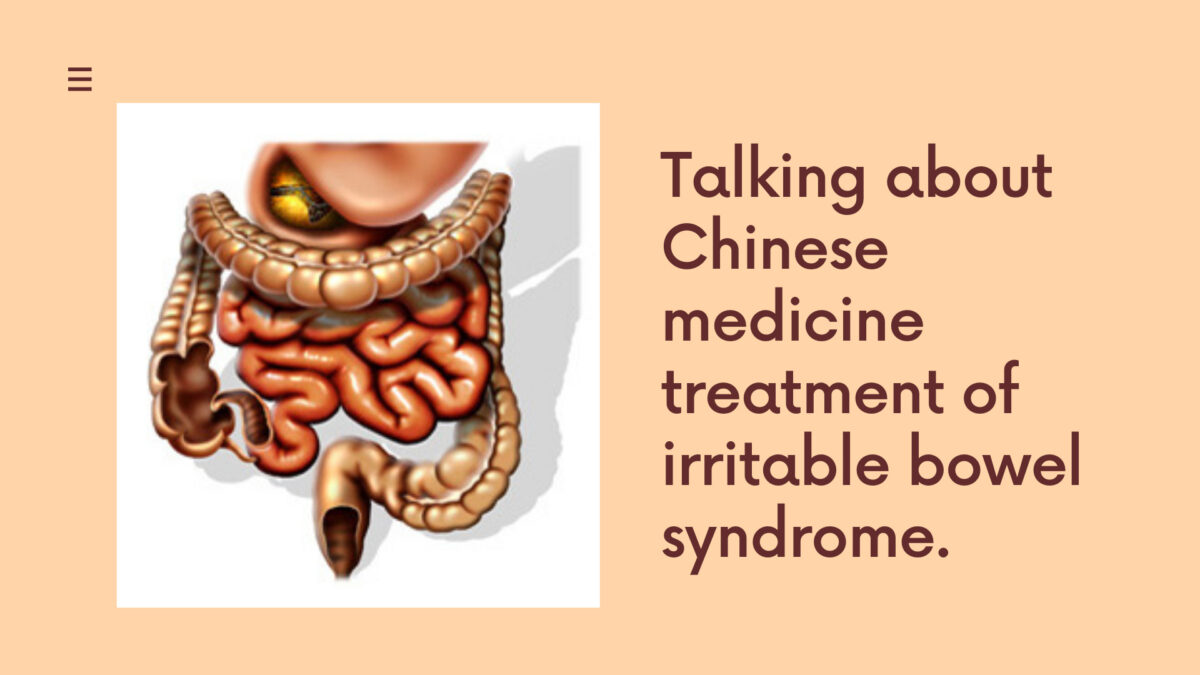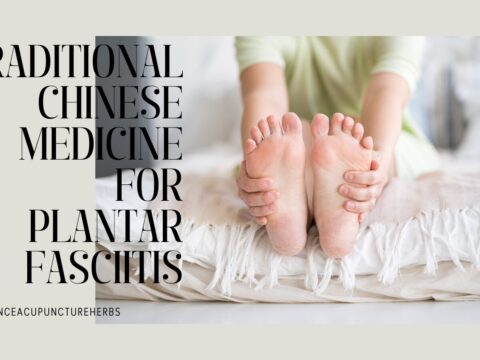
What can Chinese medicine help with Sciatica?
June 27, 2021
Three Ways to Relieve Stress
July 14, 2021|
Getting your Trinity Audio player ready...
|
Talking about Chinese medicine treatment of irritable bowel syndrome.
“Irritable bowel syndrome” that affects the quality of life:
Irritable bowel disease afflicts many modern people, with an incidence rate of up to 20%, and it accounts for one-half to one-third of the number of outpatients in the digestive tract. Especially modern people are prone to mental stress and frequent eating out due to work factors, causing gastrointestinal dysfunction. This kind of discomfort is mostly underestimated or ignored, mistakenly thinking that it is just eating bad things to make the stomach. As long as the bowel movement is finished, it can be relieved. Although it is not fatal, there are still more than 40% of the patients, the condition is so severe that they dare not go out, and their daily life and social activities are greatly affected. The male to female ratio is about 1:4. Therefore, women compatriots with a high attack rate should pay special attention to them and seek symptomatic treatment as soon as possible.
What is “irritable bowel syndrome”?
So, what exactly is “irritable bowel syndrome”? The current view of Morden medicine is that it is a chronic and recurrent functional intestinal disease. The main symptoms are abdominal pain, bloating or abdominal discomfort, and changes in bowel habits, but there is no abnormality in the structure and morphology of the intestine or laboratory tests. Although the patient’s intestinal function has apparent abnormalities, there is still a lack of accurate diagnostic tools and related examinations. Therefore, the clinical diagnosis of irritable bowel syndrome can only be based on the symptoms described by the patient. The currently recognized diagnostic criteria are the Rome criteria, which experts and scholars from various countries jointly discuss:
In the past 12 months, abdominal pain or discomfort occurred for at least 12 weeks (not necessarily consecutive), and at least two of the following characteristics occurred:
1. The abdomen is not suitable for relief after defecation
2. The frequency of defecation changes
3. Changes in stool morphology
In addition to the above typical symptoms, irritable bowel syndrome is also prone to the following clinical manifestations:
1. Abdominal pain: It is more common in the left lower abdomen in any part of the colon. Often accompanied by abdominal distension, swelling, or abdominal pain disappeared after defecation.
2. Diarrhea: loose stools containing mucus, sometimes more viscous excretion may occur. Some have constipation or alternate diarrhea and constipation.
3. Others: post-eating fullness, belching, anorexia, nausea, chest tightness, shortness of breath, palpitations, insomnia, hyperhidrosis occur in combination. Palpation of the abdomen can feel the spasm of the colon with tenderness.
What is the effect of Chinese medicine on irritable bowel syndrome?
The Journal of the American Medical Association (JAMA), a medical journal that is widely valued by the international medical community, published Evidence Medicine in 1998 ( Evidence-Based Medicine) is the randomized, double-blind placebo-controlled clinical trial with the highest level of evidence. The research report shows that traditional Chinese medicine has a significant effect on irritable bowel syndrome. The effect is better if the patient is treated according to the patient’s constitution. The same result was also shown in our clinical treatment.
Views of Chinese medicine on irritable bowel syndrome:
Traditional Chinese medicine has always had a whole set of opinions on human physiology and disease different from Morden medicine. Irritable bowel syndrome belongs to the categories of “diarrhea,” “abdominal pain,” “constipation,” “stagnation,” and “depression syndrome” in Chinese medicine. Chinese medicine believes that the “liver” is related to the autonomic nervous system. Mental stress can cause “liver depression” to affect gastrointestinal (spleen) functions. Frequent eating and the inability to take regular and quantitative foods can also disrupt digestion, absorption, gastrointestinal motility (spleen deficiency), Causing abdominal pain, diarrhea, or constipation interaction; this is the most common cause. In addition, TCM treatment of diseases emphasizes “differentiation and treatment,” which is to adjust the medication and treatment policies according to the body’s physique and disease state. Generally speaking, TCM treatment of irritable bowel can be divided into spleen and stomach weakness, liver and spleen discord, spleen and kidney yang. There are four types of syndromes: deficiency and stasis blocking the intestines, and each has corresponding treatment prescriptions.
Life precautions for irritable bowel disease:
There is a saying that “you are your own best doctor,” patients want to improve their physical health; in addition to seeking medical assistance, there are some ways to rely on their efforts:
1. Adjustment of lifestyle:
Lifestyle may be more likely to cause symptoms than a single food. For example, irregular meals, rushing meals, frequent interruptions by work, working while eating, or seldom relaxing can worsen symptoms.
2. Adjustment of food content:
Constipation patients should eat more fiber foods, reduce fat intake, eat fewer sweets, glutinous rice, fried, beans, and other foods. Diarrhea patients reduce fiber and sugars such as lactose and fructose.
3. Attention to dietary taboos:
Avoid coffee, alcohol, greasy and irritating or cold food. Instead, you can eat lotus seeds, yam, Poria, lentils, ginseng, apples, and other foods that invigorate the spleen and relieve diarrhea in moderation.
At present, the curative effect of western medicine on irritable bowel syndrome is limited. Many patients wander between various medical institutions, which is very painful. Traditional Chinese medicine has unique curative effects in treating “syndrome differentiation and treatment,” so you might also give it a try.
Read More:
How Acupuncture Helps Cancer Patients?
Do you always feel that life is particularly choking before menstruation?
[IVF or IUI] Acupuncture Improves Success Rate of Fertility Treatment
[wpseo_address show_state=”1″ show_country=”1″ show_phone=”1″ show_phone_2=”0″ show_fax=”0″ show_email=”0″ show_logo=”0″]
[wpseo_map max_number=”undefined” width=”400″ height=”300″ zoom=”-1″ map_style=”roadmap” scrollable=”1″ draggable=”1″ show_route=”0″ show_state=”0″ show_phone=”1″ show_phone_2=”0″ show_fax=”1″]




